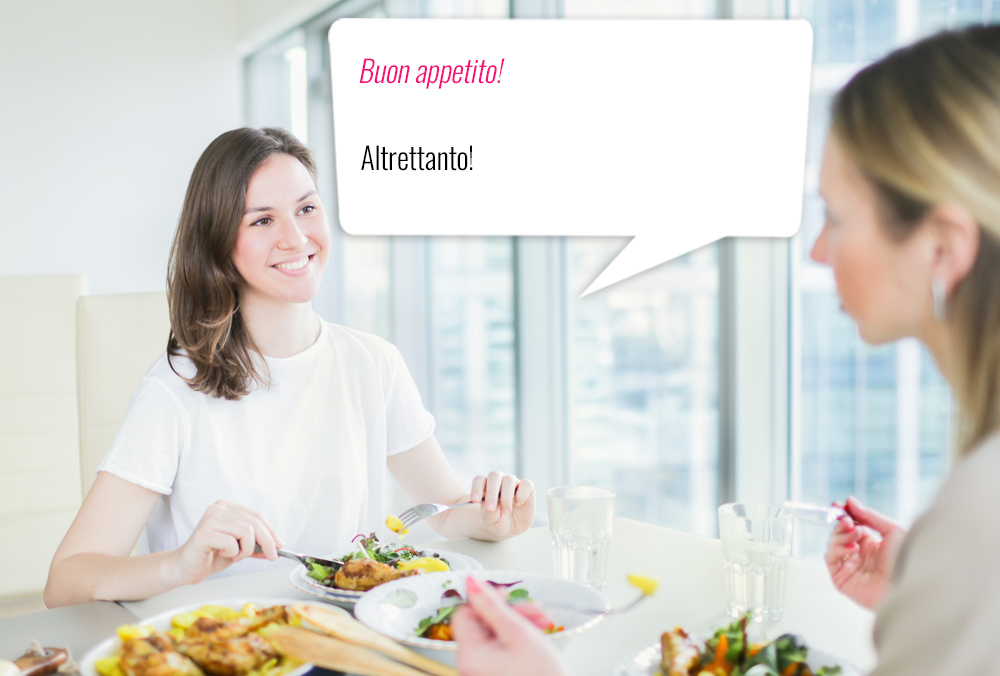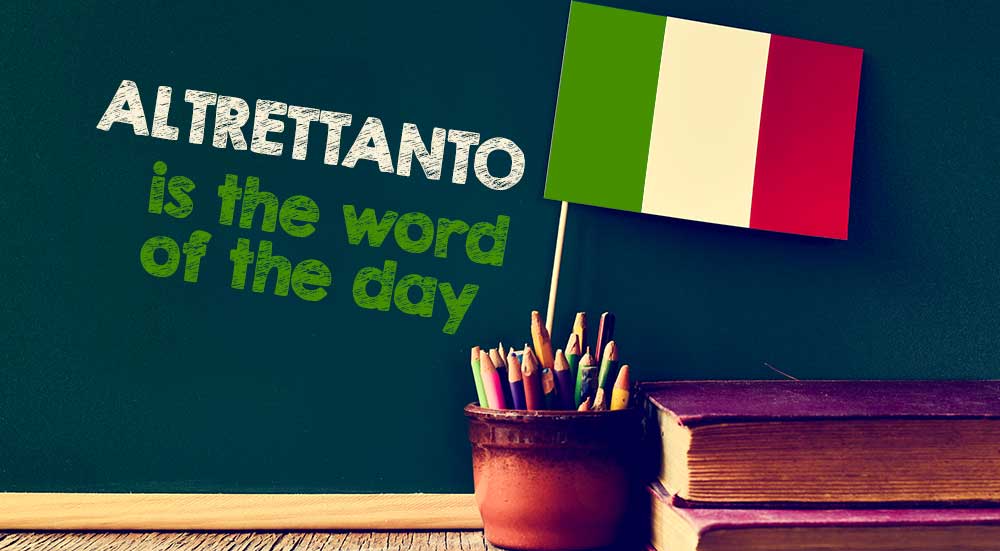Today’s word, altrettanto (ahl-treht-tahn-toh), is a “univerbation,” a fancy term that means it is formed by two words: altro and tanto. This combination reflects the Latin expression alterum tantum, and it is similar to the French autant and the Venetian altretanto. These roots convey meanings like “other,” “more,” and “much.”
It appeared in Italian in the 13th century and we have plenty of famous attestations of it in our beautiful literature, including the works of the great Ludovico Ariosto.
In contemporary Italian, altrettanto is commonly used as a polite response to good wishes. It means “the same to you,” “you too,” “equally,” or “likewise.” For instance, in response to Buona giornata! (Have a good day!), replying with Altrettanto! is customary and considered polite.
Although not among the most frequently used Italian words, “altrettanto” is still significant in daily communication: guess, it ranks as the 1048th word in the top 2000 Italian words!
Altrettanto can be declined, which means it has a singular, a plural, a masculine, and a feminine, so, you can say: Ho mangiato 5 biscotti, e tu altrettanti! (“I had 5 cookies, and you as many!”), or Tu dici di aver avuto pazienza, ma io ne ho avuta altrettanta (“You say you’ve had plenty of patience, but so have I”).
One of the best things about altrettanto is how it applies to all contexts — just like it’s common for most indefinite pronouns, so you can find it in very familiar expressions, like the ones you’ve just read, but also in more formal contexts, as in Lo studio ha dimostrato che il nuovo farmaco è altrettanto efficace di quello esistente (“The study demonstrated the new medication is as effective as the existing one”).
- Buon appetito!
- Altrettanto!
- Enjoy your meal!
- You too!
- E’ un anello costoso, ma il tuo vale altrettanto
- It’s an expensive ring, but yours is worth as much






























